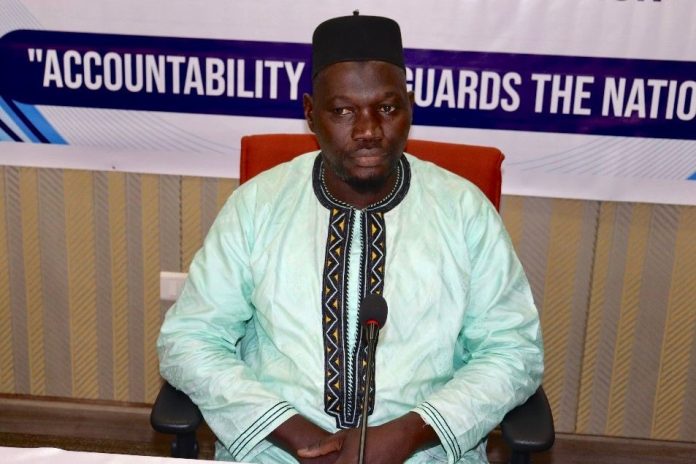By Kebba AF Touray
The Director General of the Gambia Livestock Marketing Agency (GLMA), Momodou Darboe, appeared before the National Assembly’s Special Select Committee on Tuesday, 22nd July 2025, to provide testimony on GLMA’s role in the management of livestock linked to former President Yahya Jammeh, including the tagging, valuation, and unexplained loss of thousands of animals.
GLMA, a statutory body created by an act of parliament in 2008 and operational since 2010, was entrusted with the care of Jammeh’s livestock after a 2017 High Court order placed the animals under its custody as part of the asset recovery process following the ex-president’s departure from office.
Darboe began his testimony by confirming that he had submitted a written statement to the committee and explained GLMA’s mandate: promoting the commercialization and regulation of livestock and meat trade in The Gambia, establishing livestock markets, owning abattoirs, and ensuring food safety standards.
The committee, led by Counsel Aji Sai Kah, questioned Darboe about a letter from the Ministry of Agriculture instructing GLMA to take over Jammeh’s livestock. The letter, signed by Ebrima Sankareh, reportedly referenced the High Court’s freezing order dated 22nd May 2017 — but according to Darboe, the order itself was not attached.
GLMA’s then-Director of Technical and Field Services, Ebrima Cham (now board chair), responded to the ministry, expressing willingness to comply but sought clarification on implementation modalities due to the missing court order. Darboe, who joined the agency in 2019 as Director of Technical Services before rising to Director General, said he had never seen the original court order until it was presented to him during the hearing as exhibit MOJ 5A.
Counsel Kah pressed Darboe on why GLMA did not act swiftly or independently in response to the order. “If they had received the court order,” Darboe said, “they would have acted accordingly.”
He explained that without the order and clear terms of reference, GLMA could not proceed. He also cited the agency’s lack of logistical capacity to manage livestock spread across multiple locations.
Referencing the Registrar General’s report addressed to the Chief of Defense Staff — marked GLMA 6 — Counsel Kah questioned Darboe about allegations that 400 cattle were slaughtered by one Major Gibril Jammeh for unknown reasons. The Counsel suggested that this may have occurred due to GLMA’s failure to follow the court order. Darboe refuted the claim, stating that GLMA’s inability to act was due to the lack of access to the order itself.
He added that internal correspondence and Ministry letters at the time acknowledged that GLMA had not received the legal directive. “It would be difficult to blame GLMA for the consequences of an order they were never given,” he said.
When asked about communication between GLMA and the Janneh Commission — the body tasked with investigating Jammeh’s assets — Darboe said he had no records showing prior written notice about the valuation of livestock. He added that decisions around valuation were made through informal calls between GLMA staff and Justice Ministry officials.
Darboe revealed that GLMA’s involvement in tagging and valuation began between 24th and 30th December 2017. However, he said the agency received no formal valuation report from the government. Based on internal reports, the valuation method categorized cattle into small, medium, large, and extra-large sizes, with aggressive animals tagged using long sticks.
Referencing GLMA’s own inventory records (GLMA 7), Darboe read that in August 2016, the agency documented 1,476 cattle in Kanilai. But by December 2017, that number had dropped to 560 — a loss of 916 animals. Similarly, Farato farm reportedly had 1,200 cattle, which dropped to just 56. Banjulinding had 780 cattle in 2016, down to 22 by the end of 2017 — a total reduction of 758. Altogether, GLMA’s 2016 inventory had recorded 3,456 cattle, with thousands unaccounted for within just 18 months.
Asked whether GLMA could provide accountability for the missing cattle, Darboe said: “Definitely, we have not received any reports. What I was told is that the categorization and valuation were done without our direct documentation.”
The hearing raised serious concerns about poor record-keeping, failure to act on court directives, and significant gaps in oversight that may have contributed to the unexplained disappearance of valuable public assets.
The Committee is expected to continue questioning key officials involved in the management of Jammeh’s assets as part of its wide-ranging probe.



















